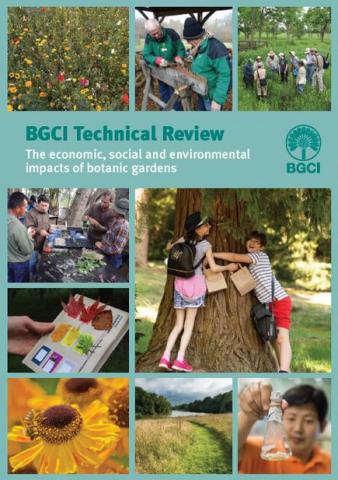
In 2017, at the request of BGCI’s International Advisory Council, BGCI produced a Technical Review on defining the botanic garden, and how to measure performance and success. In carrying out this survey and review, it became clear that too few botanic gardens measure the impacts of their work. Instead, there is a strong tendency to measure areas of activity.
To address this gap BGCI have produced a second Technical Review on the economic, social and environmental impacts of botanic gardens. The Technical Review highlights case studies where impact evaluation studies have been carried out by objective, third parties - usually auditors, consultants or academics.
Some of the key recommendations include:
- More studies are needed on the effect that botanic gardens have on property prices in surrounding areas, and the effect on property taxes that go back to local government.
- Where collections can demonstrably be shown to support vital research, botanic gardens should commission research into the current or potential economic return on investment provided by those collections.
- Long term studies on the impacts of botanic garden schools education programmes are needed, in particular whether they have the potential to be life changing for children in the way they interact with plants and the environment.
- Botanic gardens should promote their unique collections, knowledge and skills by sharing their collections and data, by communicating directly with other professional communities conserving and managing plant diversity, and by adopting multidisciplinary approaches to problem-solving.
- Botanic gardens should document their activities that directly address environmental problems or support others trying to solve these challenges. In particular, gardens should try to measure societal impact rather than activity.
Date:
Thursday, September 6, 2018

